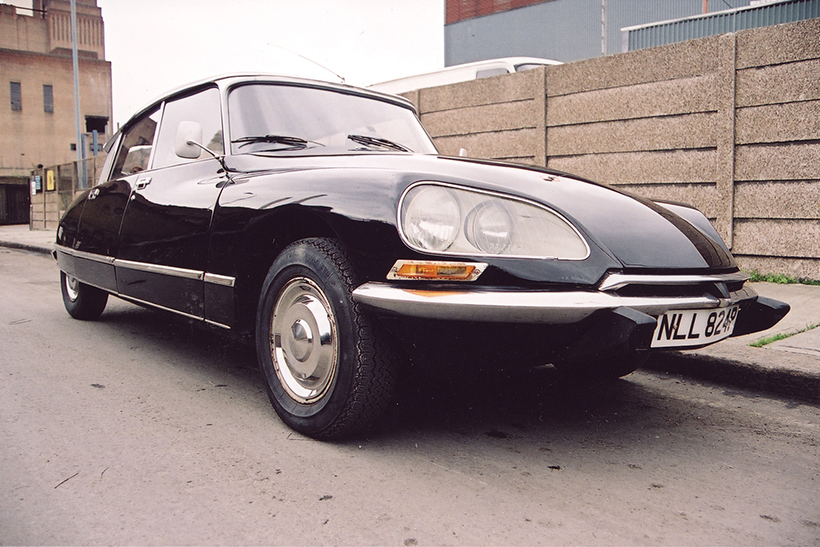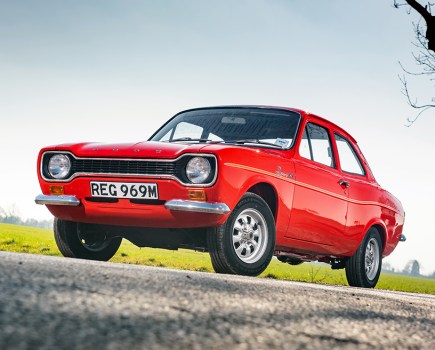What will happen when fossil fuel powered cars are no longer produced? Classics World’s Nigel Stennet-Cox takes a closer look…
Well, your columnist must confess to almost certainly not being around in twenty years time, but is that watershed likely to be a total disaster? For one, we’re not be able to predict long-term change very well, because innumerable variables affecting the outcome are also changing all the time. Before getting bogged down in semantics, let’s look at the enthusiast end of the motor vehicle scene throughout its whole history, i.e. the 1890s to the present day. For the whole of that period there have been people buying new and secondhand cars for a variety of reasons, personal transport being the obvious one. For our notional enthusiast though, he or she has always looked for, and usually found to their satisfaction, more than just utility. Once cars began being bought by other than the very rich, in about 1910, a proportion of both rich and poor motorists became enthusiasts. With a variety of cars available, such inevitably came to consist of some exhibiting particular characteristics or virtues attractive to people who would group together to share and enjoy their motoring pleasures.
Sporting cars of high quality and performance were popping up before the First World War, by, for instance, Mercedes and Benz, then separate companies, Peugeot, Vauxhall, Sunbeam, Rolls-Royce, and after the conflict with Bentley joining the fray. Owners of, or just enthusiasts for such beauties were bound to get together, show off, maybe, and share. At the same time, more utilitarian cars, Ford Model Ts, small Singers, Morrises and Jowetts would quite rightly attract keen disciples, even fanatics. Just look at the following nowadays for Citroen 2CVs, Fiat 500s and other relatively modern stuff of great character?
To try to get to the evolutionary point we’re trying to make here, at the same time as our enthusiasts were acting out, over the generations, their love for getting the best out of their Frazer Nashes, Bentleys, and Rileys in the pre-war days, and until the ends of many of the enthusiast’s lives, new keen young types were coming on the scene too. These latter would live their life-spans over a later time period, and crucially here, would start with cars maybe equally as old as their forebears started with, but the cars would be later designs.
Since about 1930, with that year by more than coincidence marking the end of the “vintage” period as defined by the Vintage Sports Car Club, cars have become easier to drive. No question about that, sliding pinion gearboxes with no synchromesh, hard as nails suspension with ineffective shock absorbers, solidly mounted and inflexible engines, and uncompensated brakes ready to surprise our driver such that him/her could never know which wheel[s] would skid, were all the norm in the vintage period and earlier. Those able to tame such a beast, nay even get the best out of it, would be rewarded by a degree of involvement, even intimacy with the car which modern motorists could not even conceive, never mind dream about.
That’s why, dear friend, when a very senior manager of the Volkswagen-owned Bentley Motors drove one of their priceless vintage models down to the South of France a few years back, and the car had to be abandoned with a wrecked gearbox en route, we can assume that no-one enjoyed themselves and he’ll stick to modern stuff. He’ll never know what he missed. The other characteristic of old stuff, here the thirties or earlier family or “cooking” cars, is that the modern car exponent, even if that modern is a tiddly little Korean hatchback, has no idea how slow and underpowered a car can be until they try an Austin Seven or similar. Nor can the big black 4×4 driver bearing down upon their rear-ends.
Enough doom and gloom, the point we’re getting to here is that this process continues, to our modern-day enthusiast, an old car with which he/she can identify will be, as ever, twenty or thirty years old. Now, of course, that means eighties and early nineties stuff. Already, seventies cars which are reckoned to be tasty and fun, like fast Fords and other sporting stuff are beyond the financial reach of the young and impecunious. And a lot of sixties products are too slow, ponderous, and difficult, hence challenging to drive for the present generation.
Back to one of our original points, cars have continually, and almost in a linear fashion become easier to drive. We see it in assessments and “road tests” of cars in magazines such as this one. Some young journalist drives a car like an Austin A30 and reports that its gearbox proved challenging because it “has no synchromesh”. Yes it does, almost any car produced since about 1931-2 has synchromesh on the upper two or three ratios. But no, it’s not the type where anyone can pretty well shove it into any gear except reverse at any speed and it’ll just go in. Riding with my daughters and their respective partners, they will go “down the ‘box” when slowing down and think nothing of engaging first when doing 20mph or more.
Many sixties cars had no synchromesh on first gear. Think any Morris Minor, the Anglia 105E, but not its 1200cc brother, anything Rootes except the Imp until the 1966 model year, anything BMC in the Farina range and the large Fords, Consul, Zephyr and Zodiac prior to the Mark 3 models. Aforementioned daughters could demolish one of these gearboxes in a day driving “normally”. A sharp awareness that we’re guilty of parochialism here with all of our British cars, prompts your scribe to mention that the basic model Beetle only got some synchromesh at all in the sixties!
So, in conclusion, when electric cars, maybe even driverless ones, are whisking us around with next to no skilled driver input, will the petrol and diesel ones which preceded them have been so different, or much more involving? We already rely upon “retro” styling to pass for character, like the MINI, the new Fiat 500, and the new Beetle. We could get that with electric propulsion, but for the rest of us, we’ll still have our preferred old stuff to play with. And someone will want to sell us oil or gas, surely?






